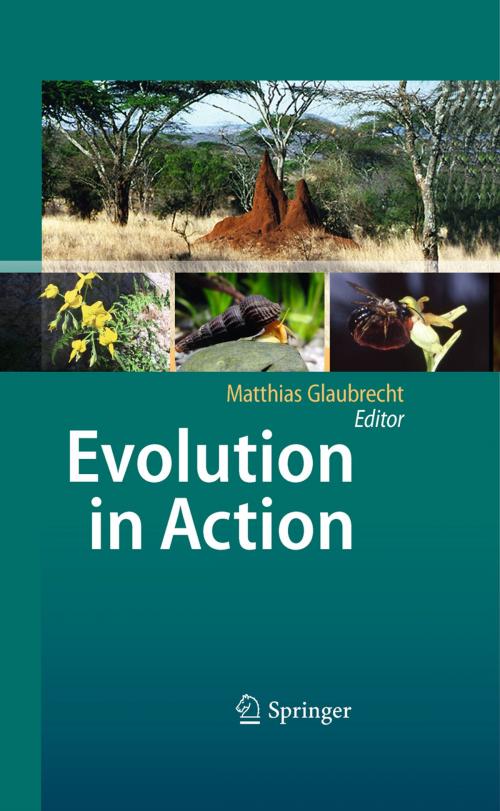Evolution in Action
Case studies in Adaptive Radiation, Speciation and the Origin of Biodiversity
Nonfiction, Science & Nature, Science, Biological Sciences, Ecology, Evolution| Author: | ISBN: | 9783642124259 | |
| Publisher: | Springer Berlin Heidelberg | Publication: | July 24, 2010 |
| Imprint: | Springer | Language: | English |
| Author: | |
| ISBN: | 9783642124259 |
| Publisher: | Springer Berlin Heidelberg |
| Publication: | July 24, 2010 |
| Imprint: | Springer |
| Language: | English |
Radiations, or Evolution in Action We have just celebrated the “Darwin Year” with the double anniversary of his 200th birthday and 150th year of his masterpiece, “On the Origin of Species by means of Natural Selection”. In this work, Darwin established the factual evidence of biological evolution, that species change over time, and that new organisms arise by the splitting of ancestral forms into two or more descendant species. However, above all, Darwin provided the mechanisms by arguing convincingly that it is by natural selection – as well as by sexual selection (as he later added) – that organisms adapt to their environment. The many discoveries since then have essentially con?rmed and strengthened Darwin’s central theses, with latest evidence, for example, from molecular genetics, revealing the evolutionary relationships of all life forms through one shared history of descent from a common ancestor. We have also come a long way to progressively understand more on how new species actually originate, i. e. on speciation which remained Darwin’s “mystery of m- teries”, as noted in one of his earliest transmutation notebooks. Since speciation is the underlying mechanism for radiations, it is the ultimate causation for the biological diversity of life that surrounds us.
Radiations, or Evolution in Action We have just celebrated the “Darwin Year” with the double anniversary of his 200th birthday and 150th year of his masterpiece, “On the Origin of Species by means of Natural Selection”. In this work, Darwin established the factual evidence of biological evolution, that species change over time, and that new organisms arise by the splitting of ancestral forms into two or more descendant species. However, above all, Darwin provided the mechanisms by arguing convincingly that it is by natural selection – as well as by sexual selection (as he later added) – that organisms adapt to their environment. The many discoveries since then have essentially con?rmed and strengthened Darwin’s central theses, with latest evidence, for example, from molecular genetics, revealing the evolutionary relationships of all life forms through one shared history of descent from a common ancestor. We have also come a long way to progressively understand more on how new species actually originate, i. e. on speciation which remained Darwin’s “mystery of m- teries”, as noted in one of his earliest transmutation notebooks. Since speciation is the underlying mechanism for radiations, it is the ultimate causation for the biological diversity of life that surrounds us.















